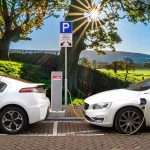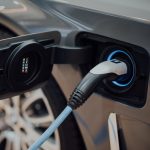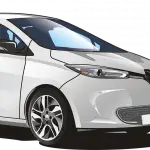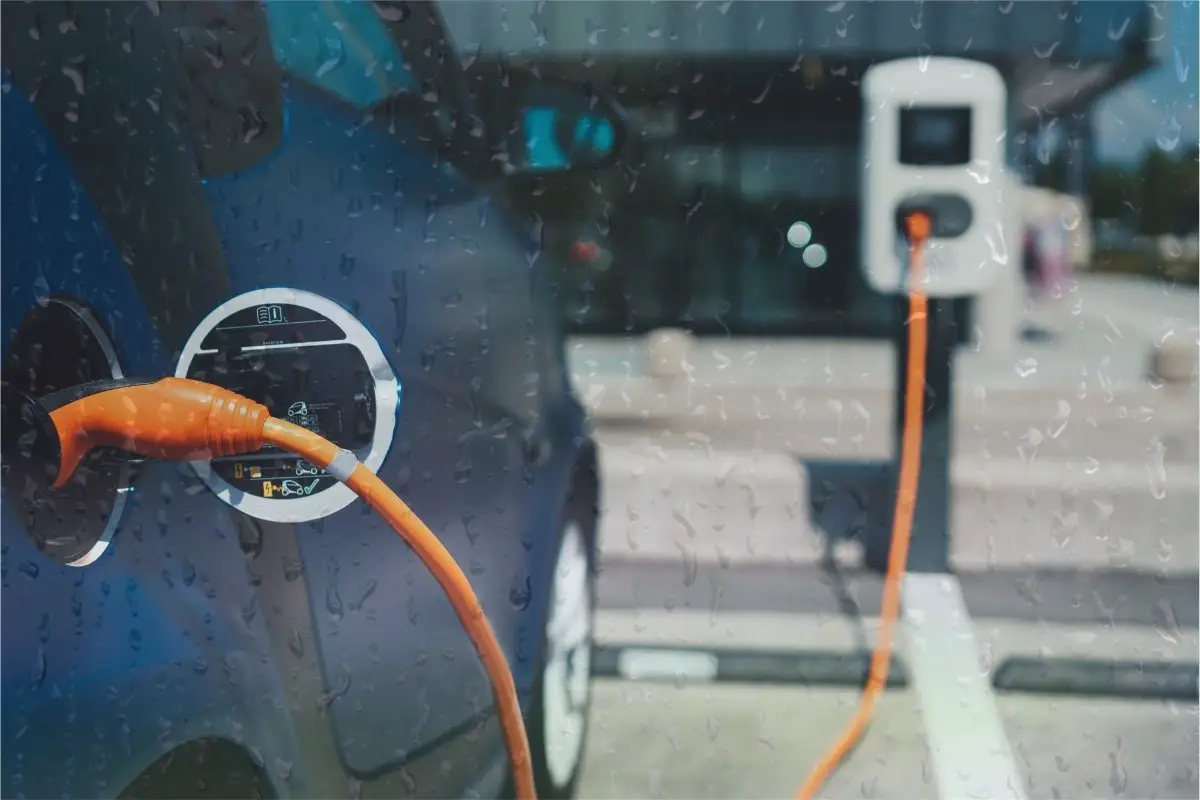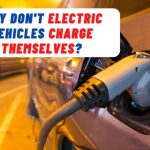Last Updated on November 19, 2022 by
Electric vehicles were surprisingly introduced in the late 1800s around the turn of the century which will introduce the industrial revolution in London and will change the world.
What is interesting is that the fastest-moving vehicle until about the year 1900 was an electric vehicle.
This is ironic considering how electric vehicles are not considered real vehicles by most people due to their slowness in comparison to liquid-fuel-based vehicles.
However, the popularity of electric vehicles slowly reduced in the 20th century due to their high cost and lower speed, as faster combustive vehicles had been developed by then.
This was, by no means, the end of the use of electric vehicles. They were still used in the loading and unloading of freight cars and trains.
By the 21st century, the world had been made aware of the damage that the hydrocarbons had been doing to the atmosphere. World governments had started considering alternatives to liquid fuel as it will run out someday based on its rate of use.
Due to this, the popularity of electric vehicles started to grow again, that too with cheaper and longer-lasting batteries than their predecessors.
The number of customers for electric cars is rising by day and night and has made even classic gas based car brands anxious.
Many companies, such as Mustang and Porsche, have released electric variants to their cars, which many people might not be appreciating right now.
But taking into consideration the current state of the world, is it inevitable that is everyone will have to switch to electric cars eventually? Will electric cars gradually take over the world?
Electric cars will never take over
Many people say that electric cars will never take over. Most say this to give assurance to themselves, but some have facts and figures to support their statements.
Gas-based cars have been around for longer than Electric vehicles, and there has been more development on these vehicles than there has been on Electric vehicles throughout history.
For over a hundred years, people have known the power that a combustible gas engine possesses, not to include the increase in torque with the addition of NOx. As of yet, that power has been missing in electric vehicles to a great extent.
Outside the USA, electric cars are still only being introduced and are far from becoming the trend. The first choice of vehicle for many people across the world is still liquid-fuel-based vehicles.
Maybe when the environmental conditions become severe, or when we run out of fuel, we will make the switch to electric cars. But before that happens, electric cars will never take over.
What percentage of cars will be electric by 2030?
As the consumer numbers for electric vehicles grow without stopping, people have started estimating the percentage of electric cars on the road by the end of the decade.
Rising numbers in sales of electric cars imply that by 2030, about 30% of cars that you will see on the road will be electric.
This number is an estimate based on surveys conducted and sales graphs of companies across the globe. But, it is not fixed.
This number can rise as well as fall based on the future economic and political state of the world.
Will all cars be electric by 2030?
No, there is a very small chance that all cars will be electric. The middle eastern countries are slowly running out of crude oil to export to the world.
But, they have enough to sustain cars across the globe for the whole of this decade, as well as the next decade.
But when there is not enough oil, there will be no option but to buy electric cars. However, this will not happen by 2030 or 2040.
Will electric cars take over in the future?
The answer to this question depends on how many years in the future we are talking about. If the future means 10 – 20 years in the future, then the answer is no. Electric cars will be in greater demand than they are at present, but they will not have taken over by then.
But talking about 40 – 60 years in the future, there is a strong possibility that electric cars could have taken over by then. Electricity depends on solid fuel at present.
Most of it is produced by burning coal. But the dependency on electricity is going to increase in the future and we will have to find a way to produce electricity from natural resources that don’t pollute the environment.
These can be from tidal energy, wind energy, electrical energy, etc. Eventually, liquid fuel will become obsolete.
What percentage of cars will be electric by 2050?
By 2050 we can likely see as many as 60% of vehicles driven around the world be electric rather than combustive gas engine based. This is only an estimated value and could change.
But this change could very well be in an upward direction, as the more the world is starting to depend on electricity and making technological advancements.
For cars to be gas-based instead of automatic electric ones in 2050 seems unlikely.
Can you still drive gas cars after 2035?

The pollution level of the world has been rising rapidly since the year 2000. This has prompted many governments to take action on a lot of their policies and working environment.
For example, the government in Delhi, the capital of India, tried to introduce an odd/even policy.
It stated that on an odd day of the week, cars that have license numbers ending with an odd number should be seen on the road only.
Anyone in a car having their license number end with an even number on such a day will be fined. A similar rule applies for even days of the week.
Though this system failed, nothing is stopping the world’s leading countries to introduce more refined policies to ensure good air quality.
Keeping all this in mind, there is always the possibility that we might not be able to drive a gas car by 2035 if the government introduces such policies. In any other case, we can drive cars of our own choice at our leisure.
What percentage of cars are electric in 2022?
As of the year 2022, the total percentage of electric cars across the world is between 10 – 15% (as of September 2022). This number includes passenger cars as well as automobiles used in construction work, trains, etc.
The sales graph of electric cars over the years shows a general trend in the upward direction, with some years in which it falls somewhat, such as in 2015 and 2020.
Other than these two years, the graph goes up. People have formed a positive opinion of electric cars.
Will gas cars be worthless in 5 years?
No, gas cars will most likely not become worthless in the next five years. The electric cars industry is going strong, but not strong enough to cause gas cars to become worthless.
Automobile giants such as Aston Martin, Lamborghini, Mercedes, etc. have a well-established market which has very hard to overthrow, especially in the next five years.
As time passes, however, gas cars might stop production and become worthless, but this is not happening in the next 5 years.
Will electric cars take over petrol cars?
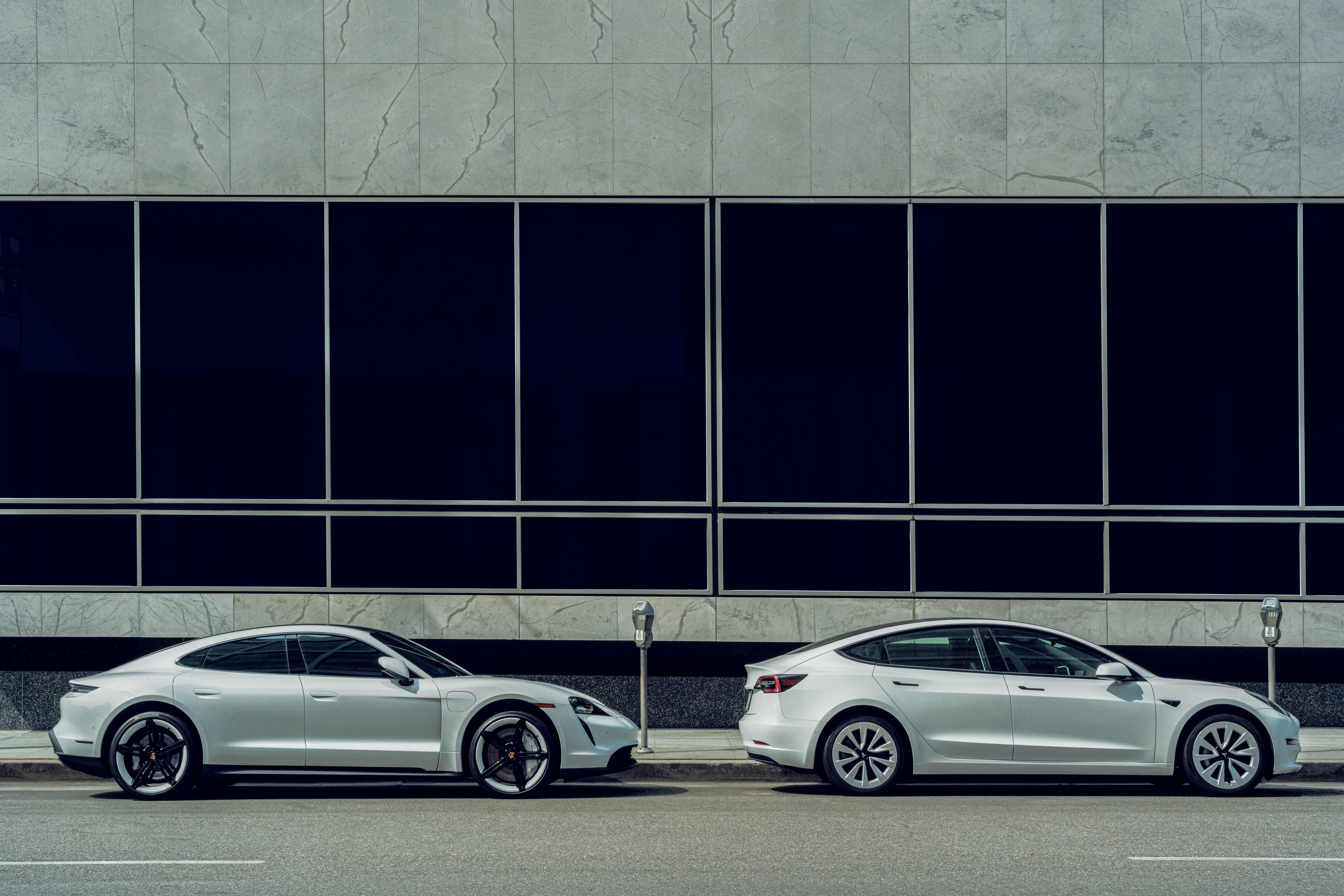
In the UK, about 2 – 3% of cars are electric or hybrid of electric and gas based. Compared to the US and other major countries of the world, this percentage is very less and goes on to show that British people still believe in gas-based cars.
Electric cars might someday be able to take over petrol cars when the world runs out of crude oil. But petrol cars will remain in the spotlight as long as this does not happen .
How much longer will gas cars be around?
Gas cars will be around for quite some time in the future. The middle-eastern countries that export oil to the whole world, such as U.A.E. and Denmark, have started giving clear signals that they will run out of oil sooner than estimated.
The Air Quality Index (A.Q.I.) of the world has been increasing gradually over the years. The higher the A.Q.I. is, the poorer the air.
With the current rate of rise in A.Q.I. and decrease in oil, it is very much possible that driving gas cars will become permanently abolished.
Though this will not happen very soon, it will happen someday. Some people have estimated this to happen in the next 40 or 50 years.
How many electric cars in US in 2022?
In 2022, there are 56,028 battery electric vehicles sold in the US, out of which about 16,871 plug-in cars sold and 72,899 hybrid cars sold. This number is accurate as of September 18th. But, it is rising as 2022 is not over yet.
This number is significantly lower as compared to the sales of gas cars in the US, which range in millions.
About 250 Million gas cars are on the road as of 2022, while electric cars on the road are less than even 1/10th of this number. But as time passes, this number is sure to rise.
Percentage of electric cars in the US by 2030?
In the first estimation that happened last year, the percentage of electric cars that will be on the road was said to be 43%.
However, earlier this year, another estimation was conducted in which this number grew to 52%.
If the demand keeps rising, then the number of electric cars on the road in the US will be no lesser than 75 – 80% at least.
What percentage of cars in the US are electric?
The following image depicts the percentage rise of electric cars in the USA by year:

FAQ relating to How long before electric vehicles take over?
Here are some frequently asked questions related to the big question “Whether electric cars will take over”?
Will old gas cars be banned?
Based on the measures that the world governments are taking to ensure as less environmental pollution as possible, there is a significant probability for gas-based vehicles to stop production.
They will very likely be abolished by the government. But, this will happen a long time in the future, if it ever does.
Will gas cars become illegal?
Gas cars might stop production and slowly go out by themselves.
For them to become illegal is an extreme approach that can be taken by the governments in extreme situations, and is unlikely to happen.
Can you still drive petrol cars after 2040?
In the UK, the middle east, India, and several smaller Asian countries, petrol cars will be around for longer than the next two decades.
The consensus of people is that electric cars are a good option, but it simply does not have equal technology compared to petrol cars. The latter will be around till and even after 2040.
What will happen to classic cars when petrol is banned?
There can be many answers to this question.
- The classic cars will be remade by parent companies into electric variants and will not require petrol.
- The owners of the parent companies will take their egos to their graves as they refuse to “spoil their brands’ name by making cars that are not real”, and go bankrupt. This will end the reign of classic cars.
- The classic cars will be abandoned by their parent companies who will instead focus on making futuristic cars based on electricity.
- This will mean the end of all classic cars and they will either be stored in museums or sold cheaply for the metal and other parts.
Key Takeaways:
- Electric cars have been around since nearly the same time as gas-based cars.
- They fell in popularity due to their higher cost and slower speed.
- They have risen since the year 2000, with their sales going only upwards.
- In 2022, a very less percentage of the total cars on the road across the globe are electric.
- This number, however, will rise.
- Someday day, fuel will run out and the environment will become too polluted for gas-based cars.
- Then gas cars will either be banned or simply stop production.
- Then, electric cars will fully take over.
- Why Electric Vehicles Are Not Popular - January 29, 2023
- How Long Do Tesla Batteries Last Per Day? Battery Facts - January 25, 2023
- Do Electric Vehicles Have Air Conditioning? - December 21, 2022

